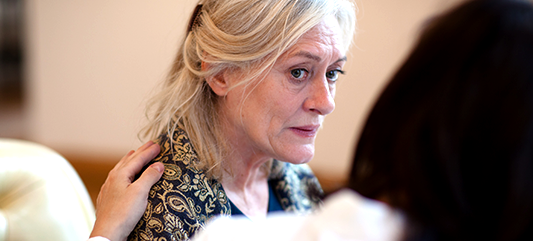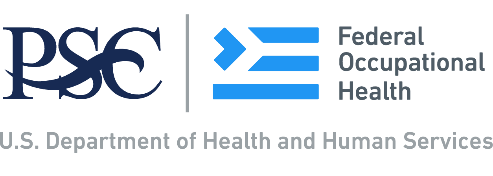When life gets difficult, we can help
Life has many ups and downs and sometimes you may need help to cope with challenges. If you have broken your arm, you would go to a doctor. If your mind hurts, a counselor can help. In both cases, it is always better to get treatment earlier than later so that things do not get worse.
Get the help you need in a convenient, confidential, safe, and non-judgmental environment. The EAP provides in-person and virtual therapy options through a national network of licensed professionals trained to help with many challenges including stress, anxiety, grief, marital/family relationship concerns, parenting, substance misuse, and more. Counseling will help you understand issues, learn coping skills, and develop solutions.
Key features
- No cost to you and your household members
- In-person or virtual counseling
- Virtual therapy includes meeting via text message, live chat, phone, or video conference
- Counseling sessions are allocated on a per-issue, per-year basis
- The number of sessions varies by agency, so check with your agency's benefits coordinator to confirm
Services provided through this program are voluntary and confidential, and utilization of this program is not reported to your employer or maintained in a personnel file. The only exceptions to this would be in the event of a mandatory referral as a condition of employment if your program utilizes mandatory referrals, if you consent to share information, or if FOH is required by applicable law to report a situation to an appropriate person or office, such as in the case of a duty to report child or elder abuse or threats to commit self-harm or harm to others.
Preparing for your appointment
Knowing what to expect and how to prepare before you see a counselor can help you feel more at ease and ensure that you get what you want and need out of your sessions. Here are a few notes and suggestions to help as you prepare for your experience:
Consider the counselor a resource
Some people may feel uneasy or embarrassed about seeing a counselor for personal problems. However, nearly everyone is faced at some time with challenges that are difficult to resolve independently. Seeking assistance for personal problems is just as important as receiving assistance for medical problems.
Having personal problems doesn't mean "I'm crazy," "I'm having a nervous breakdown," or "I'm a failure." Quite to the contrary, seeking assistance with a problem is usually a prudent and wise step and a sign of personal strength.
All services are provided in strict confidence. The personal information that you share with your counselor is confidential and not shared outside the program unless you sign a release of information or if the law requires disclosure.
How counseling sessions can help
Counselors are available to assist you with a wide variety of situations and will help you:
- Clarify a problem. Assess and evaluate complex situations.
- Develop an action plan. Identify steps to resolve the situation.
- Handle a crisis. Help you sort through your options.
- Resolve a problem. Many concerns can be resolved quickly, in just a few sessions. Your counselor can work with you to reach these short-term treatment goals.
- Engage in a treatment process. The counselor will help you resolve more complex issues requiring extended treatment.
What to bring to the first session
- A written list of questions. Write down your questions and concerns and bring the list with you. Sometimes it's hard to remember all the problems or issues, especially in a new situation.
- Notes about the problem. Bring any notes, documents, or records that will help you remember and describe the problem to the counselor.
- History of the problem. Include how long you've had the problem. Also include similar problems you've had in the past and how you resolved them.
- Medication. Bring all current medications with the pharmacy label if possible. It will help your counselor provide a more complete evaluation.
- Significant others. Where appropriate, bring family members or other significant people who are involved with the problem to the first session.
Understand the session process
- Environment. A counselor's office is typically a private office in an accessible location. The office will be comfortable, quiet, and designed for private conversations.
- Assessment. You will be asked to fill out some forms. The counselor will ask you some questions to better understand your concerns and talk with you about available options.
- Referrals. The counselor may refer you to specialists or other clinicians.
Get started today!
Need help?
Related Articles
How does the counseling process work?
Therapy is a time-tested tool that helps people with a variety of issues including stress, anxiety, relationship problems, grief, trauma, substance abuse and self-exploration.
Learn More
A guide to different types of therapy
Therapy is not just for mental health issues, it can help with support, education and guidance. It can provide you with the resources to learn and practice new ways of coping.
Learn More
Helpful tips to prepare for a counseling session
Therapy is very rewarding, however, anticipating the first session can be nerve-wracking - especially if you have never been to therapy before. Once you have found a therapist to meet with, part of the work is already done - you have started your journey to self-improvement.
Learn More
